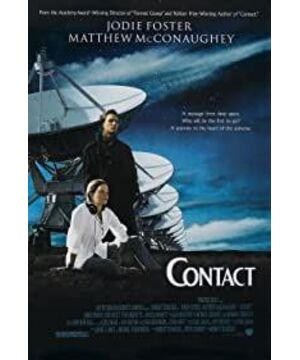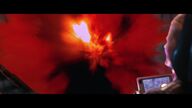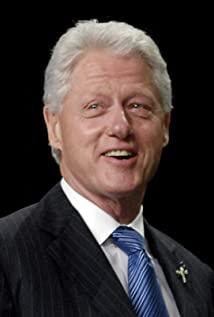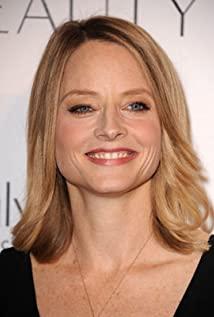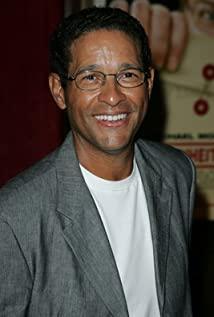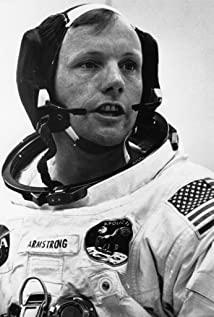Liu Guohua, a teacher in the Chinese literature class in college, once wrote this sentence on the blackboard:
Unknown world without God
Then, ask us if we are right or wrong.
Atheists educated in materialism - we - don't even think about it and think it's right.
The teacher asked back, since it is an unknown world, how do you know if there is a god?
Daigo empowerment.
On February 14, 1990, the American "Voyager 1" spacecraft flew to the edge of the solar system. The control center made it look back and take one last look at the Earth from which it started. Below is the photo taken at that time, about 6.4 billion kilometers from the earth.
Carl Sagan's astronomical science classic "The Pale Blue Dot" is named after this.
All our joys and pains, all religious, ideological and economic ideas, all hunters and robbers, all heroes and cowards, all creators and destroyers of civilization, all emperors and peasants, all young men in love Couples, all parents, hopeful children, inventors and explorers, all spiritual teachers, all corrupt politicians, all "superstars", all "top leaders", all saints and sinners, from the race of humanity From the very first day of existence - on this dust suspended in the sun's rays.
Astronomy is a humbling subject.
The farther we go, the deeper we go back. The exploration of the universe is inseparable from the origin of human beings and cannot escape religious beliefs.
So far, there is no unified conclusion in the scientific community as to what caused the ape gene mutation to evolve into a human.
"2001: A Space Odyssey" represents a point of view: they were enlightened by alien civilizations; while "Prometheus" directly believes that human beings were created by alien civilizations, just as we created AI, these are all about the origin of human beings Guess boldly.
For millions of years, our ancestors, like us today, often looked up at the stars, full of doubts about the deep unknown world. Liu Cixin said in "Chao Wen Dao":
When the first human looked up at the starry sky, human civilization began from then on, and what was done after that was nothing but a promotion of the progress of civilization.
At the same time, with the prevalence of witchcraft, the rise of sacrifices, the spread of myths, etc., religion is also accompanied by fear and exploration of the unknown, with knowledge and ignorance, and has swept the long history of mankind. deeply rooted in human civilization.
Frankly speaking, before the age of 25, I was dismissive of religion and always thought it was superstitious dregs (yes, I got a particularly high score in the political class in school), but now with more study and thinking, I am more interested in religious civilization. Awe.
This month, plus "The Wandering Earth", I have watched a total of 7 sci-fi movies. Among them, "Macro Contact" is my favorite, which is adapted from Carl Sagan's "Cosmos".
Like "Arrival", there are no cool special effects scenes, no exciting interstellar wars, and it doesn't even look "sci-fi" at all, but the exploration of the universe and the unknown is full of thought-provoking philosophical implications, which are profound and straight to the hearts of the people. I like this kind of "realistic sci-fi".
Similarly, Palmer (meaning pilgrim), the hero of "Contact", is a theological adviser to the White House and believes in God, while Eleanor, the heroine, is a scientist and believes in technology and evidence.
There is really no evidence that God exists, so there is this dialogue:
Eleanor: Almighty God created the universe, but there is no proof that he exists, or that he doesn't exist at all, we created God so that we don't feel small and lonely. Palmer: I don't know, I can't imagine what it's like to live in a world where God doesn't exist, and I don't want to. Eleanor: How do you know you're not lying to yourself? For me, I need proof.
I used the original text for the following dialogue, which is more intuitive:
Palmer: Proof? (Pauses) Do you love your father? Eleanor: What? Palmer: Your Dad, Do you love him? Eleanor: Yes, very much Palmer: Prove it!
Eleanor's micro expressions are very complicated. On the one hand, he feels inexplicable and unreasonable. Does this have something to do with the existence of God? On the other hand, he was sturdy. He just said that he needed evidence, but for a while he was convinced of the fact that he couldn't come up with evidence, and his face hurt every minute.
At the end of the movie that echoes it, Eleanor, who claims to have been in contact with the Vega civilization, once again faces the situation of being asked to give evidence. Because what her camera shot was all snowflakes, and what the staff saw was that before the launch of the aircraft, the cockpit malfunctioned and fell down, and she did not go anywhere.
Evidence and belief are the two key words in the film.
During Eleanor's first interview as a candidate for the space program, Palmer, who was a judge, asked a question:
Would you consider yourself a spiritual person?
Because spiritual also means "noble, sublime", Eleanor stole the concept, and Palmer replaced the question directly with:
Do you believe in God?
Does Eleanor, who believes in evidence, have faith?
At the investigation meeting, when she spoke with tears of her deep and wonderful experience and love for human beings and the universe,
Who can say that she is a person without faith?
Who else stipulates that God is the same in the hearts of people all over the world?
Stepping out of the investigative session, facing the admirers and supporters gathered in the square,
Who dares to say that Eleanor is not the god in their hearts at this moment?
Many people think that the male lead is a failure, but I don't agree. Although Palmer's performance as Eleanor's boyfriend is really unsatisfactory, he is a bit like a kind old father and a kind priest, because his symbolic value is greater than narrative value.
In the early stage of the film, the director used Palmer to ask the following questions:
No, I'm not against technology at all, I just keep questioning: Are we happier as human beings? Has the development of science and technology made the world a better place? We shop at home and go online, but at the same time we are emptier, lonelier and more isolated than ever before in human history.
And this is a movie from 1997, 20 years have passed, and such thought-provoking questions still exist and are more and more deeply troubled by human beings.
The "Prove it" mentioned above is not against Eleanor, it is more like a guide. He really has no way to "prove" the existence of God, but what can't be proved doesn't exist?
"There is no God in the unknown world", behind this affirmative statement, hides human conceit.
In the end, the director used Palmer to express his position - technology and religion are both exploring the truth.
Before I walked out of the ivory tower, I firmly believed that the world was materialistic and not based on will, so I couldn't watch Kazuo Inamori's "Alive" at all at that time, thinking it was downright idealism!
But this year, I have experienced "flow", tried "mindfulness meditation", practiced "emotional separation", and even marveled at "there are gods at work", and gradually understood:
This world is materialistic, and my world is idealistic.
View more about Contact reviews


